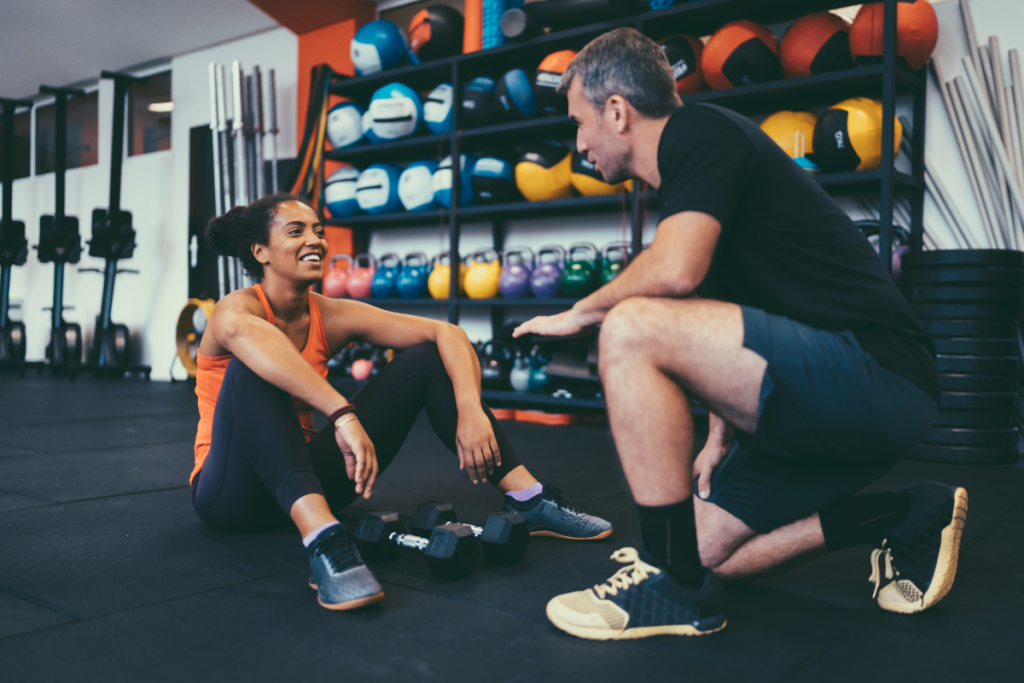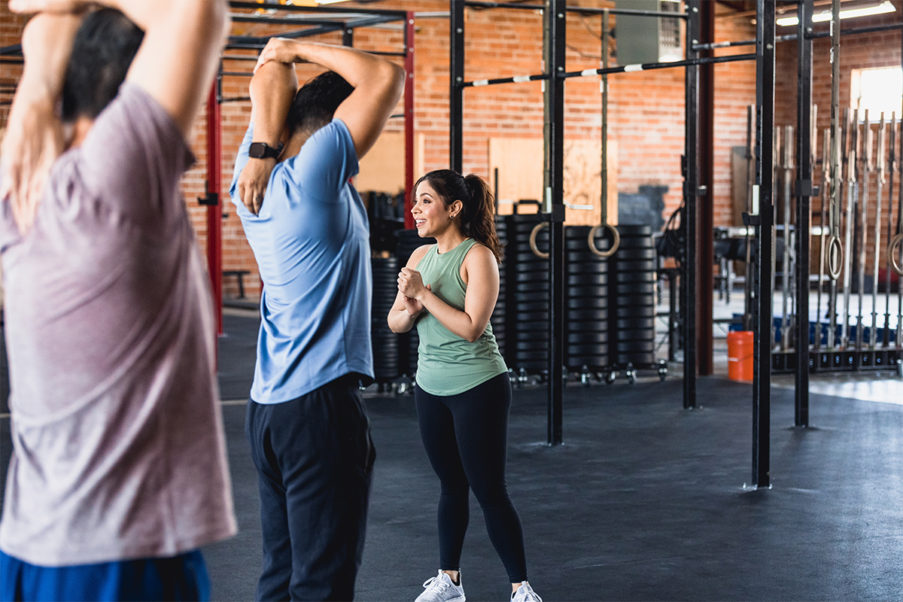Tricks of the trade
When leasing a space for your personal training business, what do you need to take into account?

Make sure the space you’re leasing is tied to your budget. I have seen business owners jump at an available space only to realize later that they didn’t factor in the time it takes to build up a client base. Equally important: Know the market you’re seeking, so you can decide if the location will be convenient for potential clients. Also, realize the “hidden” charges in a lease, as it’s rare that the lease amount is all you’ll be responsible for. There are usually additions, and each landlord is different. Consider the type of lease you’re signing, its length, rate increases over time, etc. Most important, hire a great small-business attorney because, at the end of the day, this professional will know what he or she is doing, will have negotiated numerous properties and will look out for your best interests. Along with a top-notch attorney, hire a great tax accountant. A great attorney and a great tax accountant will make sure you’re set up for success.
Nicki Anderson President, Reality Fitness Inc. Naperville, Illinois
Before you lease, consider these questions:
1. Is the location a good one? When I opened my business, I chose a location on a major highway that feeds traffic from the county north and south. Other studios off the “main drag” have come and gone. My location was farther north than I ideally wanted, but still on the main highway. (The location I really wanted cost twice my start-up budget, so I had to bide my time and make myself known.) Three years later I was able to acquire my ideal location, closer to the higher-end clientele I was seeking. I have remained there for the last 12 years.
2. Can you add on to the location? I worked with my landlord to lease a spot that would allow me to grow, and last fall I expanded. Since the economic downturn, building owners have been more willing to negotiate and may assist with build-outs, as our landlord did.
3. Can you negotiate a lower price than is advertised? We find out what businesses are paying in the area. Then, each time we are about to renew the lease, we evaluate our location and rent in comparison to other available spaces.
4. Are there any upcoming road changes that could impact your location? Before taking on or renewing a lease, we research whether or not the county is planning any changes to the nearby roads. Many area businesses went under when overpasses were made on the highway at certain cross sections.
5. Is your landlord easy to work with? We talked to tenants in each location we researched before leasing. This was a good way to find out who was quick about addressing repairs and problems, willing to negotiate and invested in maintaining the property.
6. Have you hired trusted professionals to help you? Your accountant will assist in budgeting and perhaps point out areas of expense you have not taken into account. Your lawyer should review the lease prior to signing. Many commercial leases are long and detailed and may have clauses that are not in your best interest.
Patricia Massey Welter, PMA-CPT® Owner/Head Pilates Trainer, Suncoast Pilates & Personal Training Studio Palm Harbor, Florida
These steps are helpful before signing a lease:
Hire a Broker. Hire a real-estate broker to help you locate an appropriate space. In theory, that broker should take care of negotiating the lease. But be careful. Since real-estate brokers have a stake in “closing the deal” as soon as possible in order to collect their commission, they are not always fully committed to negotiating the best terms for you no matter how long it takes. As such, you need to play a hands-on role to ensure that the final lease terms meet your needs.
Make a Deposit. Once you are sure the space is what you are looking for, put down a nonrefundable deposit to secure it. This way, you won’t lose the building while you are taking the next steps.
Decide on Any Renovations. What improvements need to be made before you can open for business? Invest in the services of an architect or a designer who can develop plans, and then communicate your precise requirements to him or her. For example, in terms of exercise equipment, the architect/designer will need to know exactly how many pieces you will have, the size of each piece and the space needed to operate it. A list of electrical items is also essential in order to complete accurate floor and electrical plans. Figuring this all out can be quite fun, since it enables you to create an exact image of what the inside of your facility will look like.
Include Improvements in the Lease Agreement. Once you have the plans, ask the lessor (landlord) to include the completion of any space improvements as a term of the lease. This step saves you a lot of headaches, since it makes the lessor responsible for any building, plumbing and electrical permits that have to be obtained from the city for renovations.
Consult a Lawyer. Submit the lease to a lawyer, explaining the renovations you want included. The lawyer will draft up any addenda (changes) to the lease and submit these to the lessor. Although all lease terms are negotiable, if you make too many demands, you may scare off the lessor by appearing too picky. But if a lawyer makes the demands, she looks like the picky one, not you.
Sign the Lease. Make sure the contract is between the appropriate parties. Should the lease be in your name or in the name of your corporation? If you plan to open a large facility and hire employees, incorporating your business may be in your best interest. For example, having your corporation lease the building will protect your personal assets. If this business structure suits you, talk to your accountant or lawyer prior to signing the lease to ensure that the appropriate paperwork is completed.
Justin Price, MA Creator, The BioMechanics Method San Diego, California
You need to take into account various factors when looking for studio space and then signing a lease. The main one is location. Are you coming from a gym environment where the clients are local? If so, then you want to stay in the same area as the gym. If you are doing in-home training now, where are most of your clients located? Maybe a location in that area would be best.
Here are some general questions to ask yourself:
- Is the location highly visible to retail traffic?
- Is the building well lit? You want clients to be comfortable coming to see you when it is dark outside.
- Is there plenty of parking?
- Can you use the parking lot for boot camps (if you offer them)?
- What other businesses are nearby? Are they competitors? Do they offer services that complement yours (so your businesses can help each other)?
- Is the rent reasonable? Shop around and know what the going rate is. The way the economy is now, you can always negotiate.
- Is the landlord agreeable? Ask the other tenants if the landlord is responsive to tenant requests.
- Is expansion possible in this location? You might be starting with a small space but want to expand later.
- What kind of signage are you allowed to have? Check with your town, as each place has its own rules.
- What kind of changes to the location will you require? Will they be included in the rent, or will you have to pay for them? If you pay for them, can you spread the payment over the term of the lease?
- How long is the lease that you want to sign? The longer the time period, the more negotiating power you have.
When I was looking for studio space, I was excited about one location right off the highway. But I traveled to it at different times of the day to see what the traffic was like and discovered that during rush hours the roads were backed up. Since a lot of my clients train at those times, they would be frustrated trying to get to my studio then.
Before budgeting for the space, remember that you also have to pay for equipment, mirrors, flooring, etc. Create a budget so you know how much you can afford to spend. Keep in mind that you need to have only the basics in place when you open. This will keep the initial costs down, until you earn more revenue and can add additional equipment.
Holly Kouvo Owner, Fitting Fitness In™ Boxborough, Massachusetts
© 2011 by IDEA Health & Fitness Inc. All rights reserved. Reproduction without permission is strictly prohibited.
If you have a question, send it to IDEA Fitness Journal via regular mail (see “Your Membership” page); e-mail (content@ideafit.com); or fax (858-535-8234). Include name, company, city, state/province and phone number.




